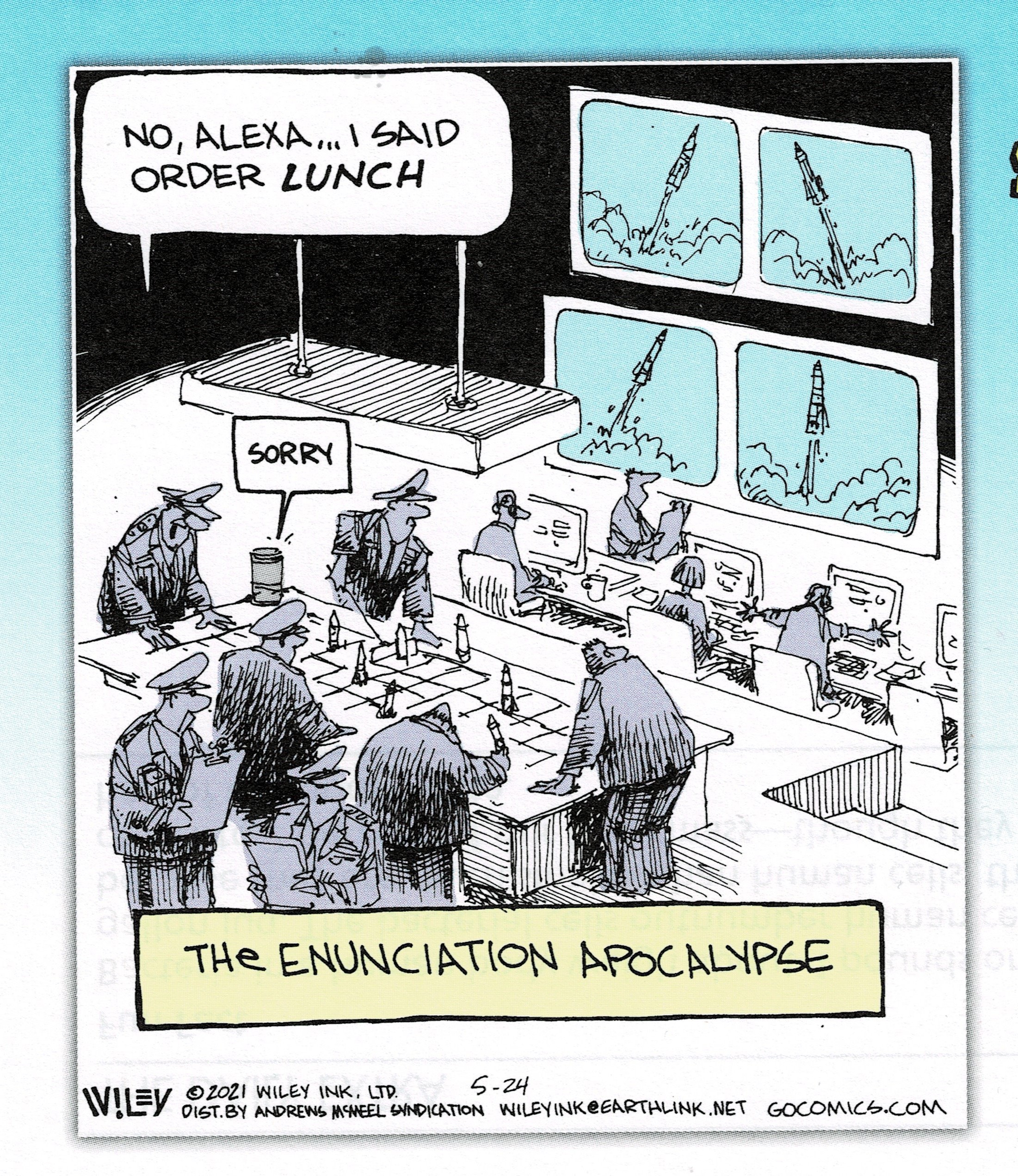Mariner’s alter ego Guru, responsible for wide ranging philosophical and futuristic insights, claimed in a recent post that the Apocalypse already has begun. There have been queries about definition.
From his safe house in Chicken Little’s hen house, mariner will lay out the timeline implied by Guru.
It all began innocently 2 million years ago when a new species evolved that had a growing brain. The species was Homo. 1 million years ago, Homo began splitting into variations. Many failed to sustain themselves and became extinct but a few with names like Neanderthal, Habilis, Australopithecus and Erectus survived into the age of humans. Together they would become Homo sapiens.
In those days, Homo had no choice but to live within the natural confines of their habitat. Living a plenteous life in an agreeable environment, a typical lifespan was about 40 years. Homo’s predators were meat eaters, infections and serious injury.
These characteristics are similar to the few indigenous tribes that still exist in remote areas of Africa and South America. These tribes to this day sustain themselves only with the restorative resources their environment provides.
About 10,000 years ago, Homo discovered how to grow more grain than he needed, hence the beginning of commerce by acquiring more grain than would be consumed by a local tribe. In a subtle way, this is the first abuse of the natural relationship between Homo and the environment.
Centuries roll by and Homo learns more ways to consume the environment beyond his natural relationship with nature. Homo extracted from nature other creatures like donkeys, horses, and wolves that would help expand the ability to acquire excessive amounts of Nature’s resources. Then Homo discovered iron, tin, lead and carbon-based energy. Now Homo could consume many times his need from Nature. Homo was consuming Nature faster than Nature could replenish itself.
This imbalance was the seed that has grown into the apocalypse we have today.
After I million years of living in accordance with the rules of Nature, in the last 1,000 years, Homo has trashed Nature; Homo has trashed the basic tribal society; Homo has trashed multiple generations that cohabit as a protective wall against difficult times. Homo quickly learned to ignore Nature and lived by the rule ‘If you can do it, do it’. He developed elaborate tools which, at every step, diminished the evolutionary potential of every Homo. For example, the use of coal and gasoline in the last 150 years has destroyed the security provided by extended family and tribe (town economy). Its method was to produce trains, automobiles, mechanized, oversized farms, superhighways and national and globally based industries.
In just 150 years the apocalypse gained speed. Isolated nuclear families became the norm – left defenseless without the human support of multiple generations and tribal support. Giant corporations became the norm, slowly eliminating local economies, local jobs and the existential satisfaction found in smaller towns and cities.
In the last 175 years, the apocalypse has shifted into a higher gear. 16,000 species are extinct because of Homo indifference. Around the world potable water is becoming scarce. Seafood from the oceans is 20 percent of what it was 100 years ago. And obviously the excess use of fossil fuel has launched serious changes in air quality and of the planet generally.
But in this century the chains are off. What easy transportation did to tribes, the Internet is doing to society. Communication technology makes war easier and more horrific; interpersonal skills and rewards are replaced by artificial behavior that dismisses 1 million years of evolutionary sophistication; privacy and security are fallacious assumptions.
Now a new age is upon us: artificial intelligence (AI). AI can emulate the entire reality of Homo. The final bridge to the apocalypse is that AI can reproduce itself. Who needs Homo?
Ancient Mariner

